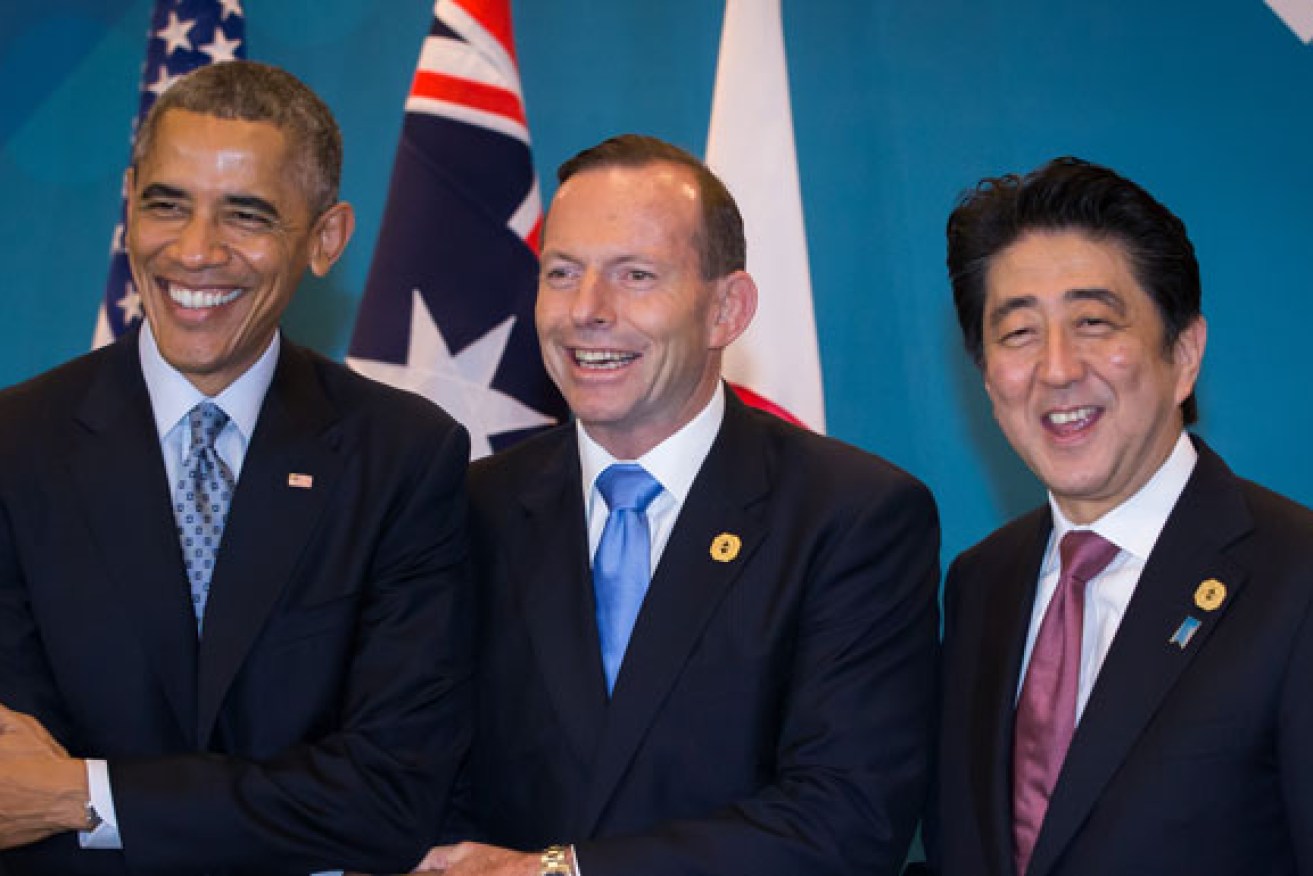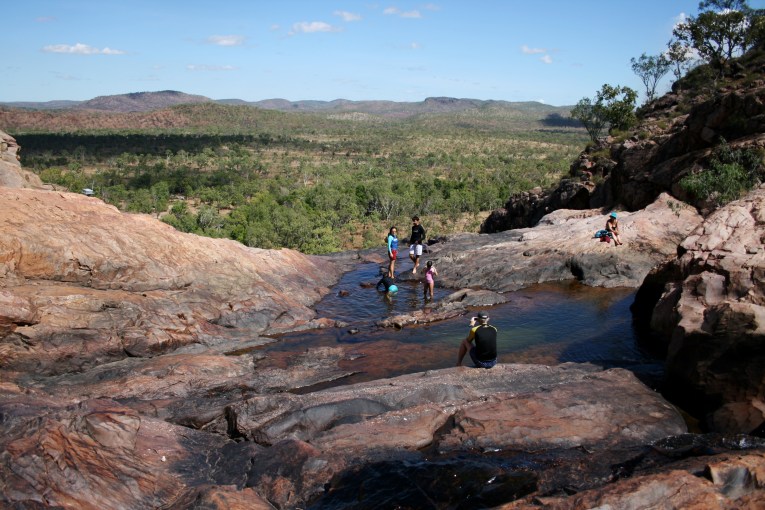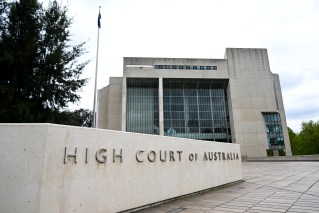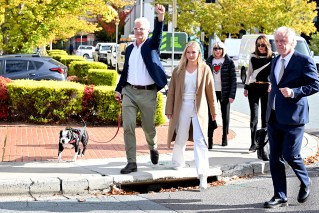Australia, USA, Japan line up against Russia

Barack Obama, Tony Abbott and Shinzo Abe at 2014's G20 summit.
A meeting between Prime Minister Tony Abbott and his Japanese and United States counterparts has ended with the three leaders opposing Russia’s destabilisation of Ukraine.
In talks on the sidelines of the G20 Leaders’ Summit in Brisbane, Mr Abbott, Japanese prime minister Shinzo Abe and US president Barack Obama also spoke about tackling and ultimately defeating Islamic State – including countering foreign fighters – as well as ending the Ebola outbreak.
• Abbott and co trying to silence climate change
• PM’s ‘weird, graceless’ comments missed mark
• ‘I didn’t hear Obama’s speech’: Hockey
In a joint statement, the trio committed to strengthening defence and security cooperation and called for those responsible for the downing of flight MH17 to be brought to justice.
“The three leaders also underscored the strength of their regional cooperation, including eliminating the North Korean nuclear and missile threat; addressing human rights in North Korea including the abductions issue; and ensuring freedom of navigation and over-flight and the peaceful resolution of maritime disputes in accordance with international law, including through legal mechanisms such as arbitration,” the statement said.
Russian president Vladimir Putin has come under intense pressure from other G20 leaders over his government’s backing for pro-Russian rebels in Ukraine, a conflict in which more than 4,000 people have died this year.
On Saturday, Western leaders warned Mr Putin that he risked more sanctions if he failed to end his country’s backing for the separatists.
Russia has denied any involvement.
Obama wants to reassure allies about strategic shift

US President Barack Obama.
Sunday morning’s trilateral meeting was arranged at Washington’s behest, a senior administration official said, under condition of anonymity.
Mr Obama, in Asia for the second time this year, wants to reassure allies about Washington’s strategic shift toward the region.
But China views greater military cooperation between the three parties warily.
The three leaders discussed the need for the “peaceful resolution of maritime disputes in accordance with international law”, an oblique reference to disputes between China and its neighbours over islands in the South China Sea.
In a speech on Saturday, Mr Obama alluded to Beijing’s maritime disputes with its neighbours and growing concern about its military build-up, insisting that the United States would not back down from its commitment to the region.
Australia was leaning towards buying as many as 12 stealth submarines from Japan, a major portion of its overall $40 billion submarine program.
Washington supported the deal.
Japan pledges money to climate fund
Japan also announced it will contribute $US1.5 billion to the Green Climate Fund for developing countries, following Mr Obama’s $3 billion pledge yesterday.
A White House statement said both countries would reiterate their contributions at a pledging session in Berlin this week.
“Today’s announcement builds on a history of collective leadership by the United States, Japan, and other countries to support resilient and low-carbon development around the world,” the statement said.
“In 2008, our countries jointly spearheaded the establishment of the Climate Investment Funds (CIFs).
“Our pledges to the GCF are a continuation of that spirit of leadership.
“The GCF will mobilise investment from the private sector, whose resources and expertise will be essential to meet the climate challenge.”








